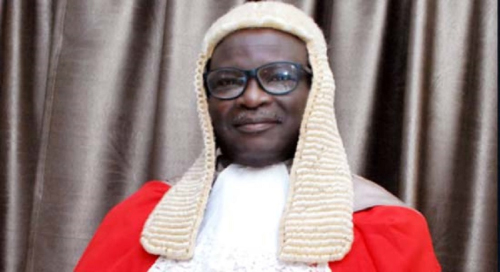
By Justice Alaba Omolaye-Ajileye, PhD. (Rtd)
Today’s piece embodies my reflections on the controversial issue of electronic transmission of election results. What is the position of the law on the issue?
From the onset, it is important to take recourse to the provisions of Section 60 (4) (5) of the Electoral Act. They provide as follows:
60 (4). The presiding officer shall count and announce the result at the polling unit.
60 (5). The presiding officer shall transfer the results including total number of accredited voters and the results of the ballot in a manner as prescribed by the Commission.
The relevant question that arises here is, what is the manner of transfer prescribed by the Commission?
The answer to the above question can be found in Clause 38 of the Regulations and Guidelines for the Conduct of Elections, 2022 which stipulates thus:
_Upon completion of all the Polling Unit voting and results, procedures, the Presiding Officer shall:_
(i) Electronically transmit or transfer the result of the Polling Unit, ɗirect to the collation system as prescribed by the Commission.
(ii) Use BVAS to upload a scanned of the EC8A to INEC Result Viewing Portal (IReV), as prescribed by the Commission.
Now, what interpretation do we ascribe to the above provisions? Is it mandatory or optional for INEC to transmit the result of a polling unit electronically?
My answer to the above question is that it is mandatory for the presiding officer to transmit the result of a polling unit electronically . First and foremost, it is one of the surest indexes of a progressive and dynamic jurisprudence to seek to know the purpose for the enactment of a statute. It is without doubt that the repeal of the Electoral Act, 2010 (as amended) and the enactment of the 2022 Act, with all the innovations embodied in it, including the introduction of Bimodal Voter Accreditation System (BVAS), the law makers intended that our electoral system be enhanced, transparent and credible, beyond what the situation in the past was. This conclusion becomes inevitable having regard to the use of the word “shall”, which, by literal interpretation, imposes an obligation on the presiding officer to comply with the relevant provisions of the Electoral Act and the INEC Guidelines.
Second, the INEC Guidelines, though a subsidiary legislation, by judicial authorities, had been accorded a place of prominence as part and parcel of the Electoral Act. In APP v INEC (2019) LPELR 48465 (CA), the Court of Appeal aptly held the INEC Guidelines form part of the Electoral Act and non-compliance with them means non-compliance with the Electoral Act. See also: Hon. James Abiodun Faleke v INEC & Anor. (2016) 18 NWLR (Prt. 1543) 61
Furthermore, by virtue Section 160 (1) of the 1999 Constitution (as amended), INEC has the constitutional power to regulate its own procedure or confer powers and impose duties on its officers for the purpose of discharging its functions. Section 148 of the Electoral Act also contains similar provisions to ensure proper discharge of its functions. It follows, therefore, that since the INEC Guidelines are backed up constitutionally and statutorily, they must be invoked, applied and enforced.





